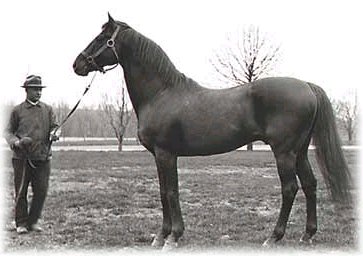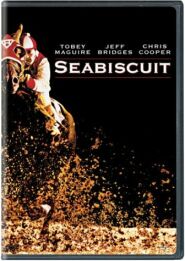

In the early days of the thoroughbred, the saying was "Snap for speed, and Matchem for truth and daylight." In America, it was Matchem's male line descendant Fair Play who provided the stamina in a similar equation. He led the sire's list three times and sired a total of forty nine stakes winners. His most famous son was the great Man o' War, but Fair Play also sired five other runners whose earnings exceeded one hundred thousand dollars. They were 1927 Horse of the Year Chance Play; 1924 Belmont Stakes winner Mad Play; 1927 Belmont Stakes winner Chance Shot; handicap champion Mad Hatter, who won the 1924 Suburban Handicap and two editions of the Metropolitan Handicap; and the legendary rebel Display, winner of, among other things, the 1926 Preakness Stakes.

Other notable stakes winners by Fair Play included the talented Dublin, who won the 1922 Hopeful Stakes from Zev as well as the 1923 Dwyer Stakes and Potomac Handicap; Man o' War's full brother My Play, whose wins included the Aqueduct Handicap and whose offspring included Head Play; Astoria Stakes winner Stagecraft, the dam of Stagehand; the champion steeplechaser Fairmount, who earned $74,075 over fences; Mlle Dazie, the stakes winning dam of juvenile champion Jamestown; Sands of Pleasure, as well known for Joe Palmer's famous story as for his success on the track; Ladkin, earner of $65,730; Curate, earner of $61,895; Chatterton, the leading sire of 1932; Sporting Blood, Tailor Maid and How Fair.
Fair Play was perhaps the finest horse to carry the silks of August Belmont II on an American track. Certainly his breeder agreed, at least at the time of his retirement, when he predicted that Fair Play would outshine his other stallions, including Rock Sand and Hastings, at stud.
The golden chestnut was a son of Hastings, the rebellious winner of the 1896 Belmont Stakes and the Toboggan Handicap, and *Fairy Gold, winner of the 1898 Woodcote Stakes in England. Fairy Gold was sired by 1880 Epsom Derby winner Bend Or, who sired numerous quality horses, including the unbeaten English Triple Crown winner Ormonde. In addition to Fair Play, Fairy Gold produced Friar Rock, who was Horse of the Year in 1916; the stakes winner Flittergold, who won twenty nine out of a staggering one hundred and fifty career starts, including the Old Bay, Royal Blue, and Chesterbrook Handicaps; and International Handicap winner Fair Gain, arguably the second best yearling in Belmont's famous Saratoga consignment of 1918.
Fair Play began his career in 1907, running fourth in his first attempt. He broke his maiden the next time out, taking an overnight handicap. After victories in the Flash Stakes and the Montauk Stakes, Fair Play ran second in the Hopeful Stakes, then third in the U.S. Hotel Stakes. He met James R. Keene's young star Colin for the first time in the Futurity, and was beaten by four lengths. Colin beat Fair Play again in the Produce Stakes, and a third time in the Matron Stakes, earning the juvenile championship as well as Horse of the Year honors. Despite the absence of Colin, Fair Play also ran second in his final start that season, losing the Nursery Handicap to the longshot Dorante, who proved his class by winning the Travers Stakes the following year.
As a three-year-old, Fair Play was much improved. Running sixteen times, he was never out of the money, and finished third only once. His stamina was evidenced by three victories at a mile and a half, a win at a mile and five eighths, and a triumph at a mile and three quarters. He also set track records at a mile and a quarter and a mile and five sixteenths. After five straight second place finishes, including his famous narrow loss to Colin in the Belmont Stakes and his defeat at the hands of Colin's stablemate Celt in the Brooklyn Handicap, Fair Play finally visited the winner's circle, scoring in the Brooklyn Derby.
A week later he ran third behind the champion Ballot, who also wore Keene's colors, and the top horse King James in the Suburban Handicap, but came back to be the dominant force in his division in the second half of the season, now that Colin and Celt had both been retired, winning six times in nine starts.
Fair Play's victories included the Lawrence Realization, the Jerome Handicap, and the Jockey Club Stakes. His $70,215 in earnings contributed greatly to Hastings' top position on the sires list.
When gambling was outlawed in New York in 1909, Fair Play was shipped to England. Unplaced in six starts, the horse grew to hate the turf so much that, upon his retirement to Nursery Stud, he refused to gallop on the grass. In order to be exercised, he had to be led to a nearby road. Before leaving for England, Fair Play had been in the money in twenty four of twenty six starts. After the unsuccessful foreign campaign he retired with ten wins, eleven seconds, and three thirds in thirty-two starts.
After August Belmont II's death in 1925, Fair Play was sold to Joseph E. Widener for $100,000, who also bought Belmont's other breeding stock and all of his weanlings, including Chance Shot, and presided over the dispersal sale where he bought a majority of the horses back himself. Interestingly, the yearlings and horses of racing age were bought by Log Cabin Stable. This partnership consisted of W. Averell Harriman, future governor of New York, and George Herbert Walker, grandfather of President George Bush. Chance Play was among those purchased.
The sale of Fair Play at the Belmont dispersal had an effect on a number of key players in racing history. Mr. and Mrs. Peter A.B. Widener II arrived at the sale as somewhat disinterested guests of the senior Widener. Their lives were changed. Said the younger Widener:
"The course of our lives had been changed by a golden horse. The horse was the grand old man of the American turf, Fair Play, sire of Man o' War. I'll never forget him as he stood in the sale ring. The bright Kentucky sun streamed down upon him, burnishing his chestnut sides as if with gilt. He looked a king. The energy of the twenty-year-old horse, his royal impatience, got me..."
He was not the only one affected by the great old sire. Many of those in attendance wept openly, and Marion du Pont, attending with her father, expanded her interest in the horse show world to the racetrack as well upon seeing Fair Play. The great steeplechaser Battleship, a son of Man o' War, carried the colors of Mrs. Marion du Pont Scott.
Fair Play passed away four years after his breeder, but his son Chance Play took over as a top sire, leading the sire's list in 1935 and 1944. Man o' War also led the sire's list in 1926, when Crusader was the nation's leading money winner, and Chatterton lead the list in 1932, the year of Faireno's greatest successes. Fair Play's grandson War Admiral topped the list in 1945, siring numerous stakes winners including three outstanding daughters: Busher, Busanda, and Searching.
Man o' War's son War Relic enjoyed success at stud, siring a number of stakes winners, including 1950 Two-Year-Old Champion Battlefield, Intent, and Relic. Relic sired Olden Times, who in turn sired 1982 Juvenile Champion Roving Boy. Intent sired Intentionally, who sired the champion mare Ta Wee and the highly successful sire In Reality.
In addition to getting bitten by the great Dr. Fager in the Jersey Derby, In Reality also was known for winning the Florida Derby and the Metropolitan Handicap. He sired the champions Desert Vixen and Smile, as well as the 2,000 Guineas winner Known Fact. His son Believe It was hailed as the third best three-year-old of 1978, which doesn't sound very impressive until you stop to consider the top pair.
Although relatively few tail male descendants of Fair Play remain today, his blood runs through the veins of numerous champions, most notably due to his grandsons, the great broodmare sires War Admiral, whose daughter Busanda produced Buckpasser; and Discovery, whose daughters gave us Native Dancer and Bold Ruler.
Fair Play was elected into the Hall of Fame in 1956. Eleven members of the Hall of Fame trace to Fair Play in their tale male lines. His sons Fairmount and Man o' War are also members of the Hall of Fame, as are his grandsons Discovery, Battleship, Crusader, and War Admiral, as well as his great-grandson Seabiscuit, and his great-granddaughters Busher and Searching.
| Year | Starts | Wins | Seconds | Thirds | Earnings |
|---|---|---|---|---|---|
| Lifetime | 32 | 10 | 11 | 3 | $86,950 |
| Hastings | Spendthrift | Australian | West Australian |
| Emilia | |||
| Aerolite | Lexington | ||
| Florine | |||
| Cinderella | Tomahawk | King Tom | |
| Mincemeat | |||
| Manna | Brown Bread | ||
| Tartlet | |||
| Fairy Gold | Bend Or | Doncaster | Stockwell |
| Marigold | |||
| Rouge Rose | Thormanby | ||
| Ellen Horne | |||
| Dame Masham | Galliard | Galopin | |
| Mavis | |||
| Pauline | Hermit | ||
| Lady Masham |



